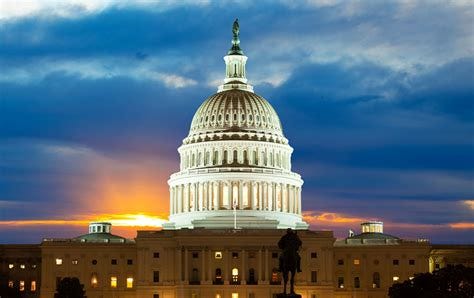DC Transition. Debt Ceiling. Domestic Spending. Democrats in the Minority.
Congress is back, and their action--or inaction--will have serious impacts on rural America. From passing the overdue '25 budget (along with a '26 budget) to renewing the Farm Bill, much is at stake.
The 119th session of U.S. Congress begins Friday, January 3rd, 2025, as new and returning Senators and Representatives will be sworn into their new terms. The session opens with Republicans controlling 220 seats in the House and 53 seats in the Senate. Democrats will have 215 House members and 47 Senators in their caucus (2 independents caucus with Democrats) for the beginning of the term.
Once Congress is sworn in, they will start work on a long “to-do” list. Congressional actions, or inactions, will have significant impacts on rural people, rural communities, and rural economies. Some key Congressional topics in 2025 will include:
House Speaker elections—Incumbent Speaker of the House Mike Johnson (R-LA) faces re-election as the first act of the term. Johnson has been endorsed by President-elect Donald Trump, but Johnson faces likely opposition from ultra-conservative Republican members who want to see deep cuts to domestic spending. They bucked Johnson and Trump in December during the 2025 budget extension/Farm Bill extension/disaster aid debate. Johnson needs 218 votes to retain his office, and all 215 Democrats are expected to vote for their leader, Hakeem Jeffries (D-NY). The House will not be able to conduct any further business until they elect a Speaker.
Raising the Debt Ceiling—Treasury Secretary Janet Yellen has reported to Congress that the U.S. is likely to reach its $36.1 trillion debt limit by the end of January. Without Congressional action to increase the borrowing limit, the federal government will not be able to pay its previous spending commitments and the U.S. will be in default. Default would have disastrous consequences, as borrowing costs and access to credit to meet budget deficits would become more difficult. Congress must act quickly to address this challenge, possibly through the 2025 budget negotiations process. The Treasury Department is taking“extraordinary measures” to slow down spending and prevent default while Congress debates the debt ceiling increase.
Passing a 2025 Budget—Congress failed to pass a fiscal year 2025 budget before the September 30, 2024, deadline. Instead, they extended 2024 operating budgets until an April 30, 2025, deadline. The budget package could be a vehicle for numerous Republican priorities, including an extension of Trump’s 2017 tax cut package along with additional cuts sought by the Republican majority. Budget reconciliation packages require only a simple majority vote. The 60-vote majority threshold to overcome the Senate filibuster is not in play for budget votes, making budget passage a pathway for partisan legislation.
Re-authorizing the Farm Bill—Congress has until September 30, 2025, to pass an updated Farm Bill, when the 2018 Farm Bill will expire without Congressional action. With Republicans now in control of both the House and the Senate, it is likely that the House and Senate Agriculture Committees will pass legislation very similar to the 2024 House Republican draft proposed by House Agriculture Committee Chair Glenn Thompson (R-PA). Thompson is returning as chair, and is likely to work closely with Senate Agriculture Committee Chair John Boozman (R-AR). Boozman, as Minority Leader during the last term, issued Farm Bill documents very similar to the Thompson draft. The Republican draft would increase farm income support, paid for primarily by decreasing food and nutrition assistance for poor and working class people. The Senate filibuster could be an important factor during this debate if Democrats decide to stand united against nutrition assistance cuts.
The Farm Bill is responsible for approximately $200 billion per year in federal spending. Nutrition programs make up the bulk of the budget, with farm support programs making up another large chunk. Grant and loan programs for rural infrastructure and economic development projects represent a much smaller portion of the federal budget pie. Source: USDA Budget Page.
These are just a few of the issues that Congress will be facing as they return to Washington, DC for the new term. The Senate will be busy with Trump Administration appointments to the Cabinet and the Courts. The 2017 Trump tax cuts are sun-setting. “Drill Baby Drill” energy politics on public lands are likely to trigger Congressional debates. Affordable Care Act subsidies could be on the chopping block.
Decisions by House and Senate members this session will matter to all Americans. They will be especially felt in places where federal spending is a critical economic engine. Numerous rural regions—from federal public lands and forest dependent areas of the West to agriculture-dominant communities in the Great Plains, Midwest, and South—will face direct consequences as budget and Administrative changes are implemented throughout 2025.
The Cocklebur covers rural policy and politics from a progressive point-of-view. Our work focuses on a tangled rural political reality of dishonest debate, economic and racial disparities, corporate power over our democracy, and disinformation peddled by conservative media outlets. We aim to use facts, data, and science to inform our point-of-view. We wear our complicated love/WTF relationship with rural America on our sleeve.





